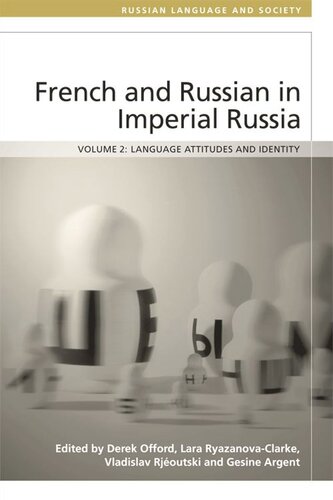

Most ebook files are in PDF format, so you can easily read them using various software such as Foxit Reader or directly on the Google Chrome browser.
Some ebook files are released by publishers in other formats such as .awz, .mobi, .epub, .fb2, etc. You may need to install specific software to read these formats on mobile/PC, such as Calibre.
Please read the tutorial at this link: https://ebookbell.com/faq
We offer FREE conversion to the popular formats you request; however, this may take some time. Therefore, right after payment, please email us, and we will try to provide the service as quickly as possible.
For some exceptional file formats or broken links (if any), please refrain from opening any disputes. Instead, email us first, and we will try to assist within a maximum of 6 hours.
EbookBell Team

4.7
86 reviewsThis is the second of two companion volumes which examine language use and language attitudes in eighteenth- and nineteenth-century Russia, focusing on the transitional period from the Enlightenment to the age of Pushkin. Set against the background of the rapid transformation of Russia into a major European power, the two volumes of French and Russian in Imperial Russia consider the functions of multilingualism and the use of French as a prestige language among the elite, as well as the benefits of Franco-Russian bilingualism and the anxieties to which it gave rise.
This second volume, Language Attitudes and Identity, explores the impact of French on Russian language attitudes, especially among the literary community. It examines the ways in which perceptions of Russian francophonie helped to shape social, political and cultural identity as Russia began to seek space of its own in the European cultural landscape. In the process, it investigates approaches to translation, journalistic debate about language, literary representation of devotees of French social practice and fashion, and manifestations of linguistic purism and patriotism.
A comprehensive and original contribution to the multidisciplinary study of language, the two volumes address, from a historical viewpoint, subjects of relevance to sociolinguists (especially bilingualism and multilingualism), social and cultural historians (social and national identity, linguistic and cultural borrowing), Slavists (the relationship of Russian and western culture) and students of the European Enlightenment, Neo-Classicism, Romanticism and cultural nationalism.